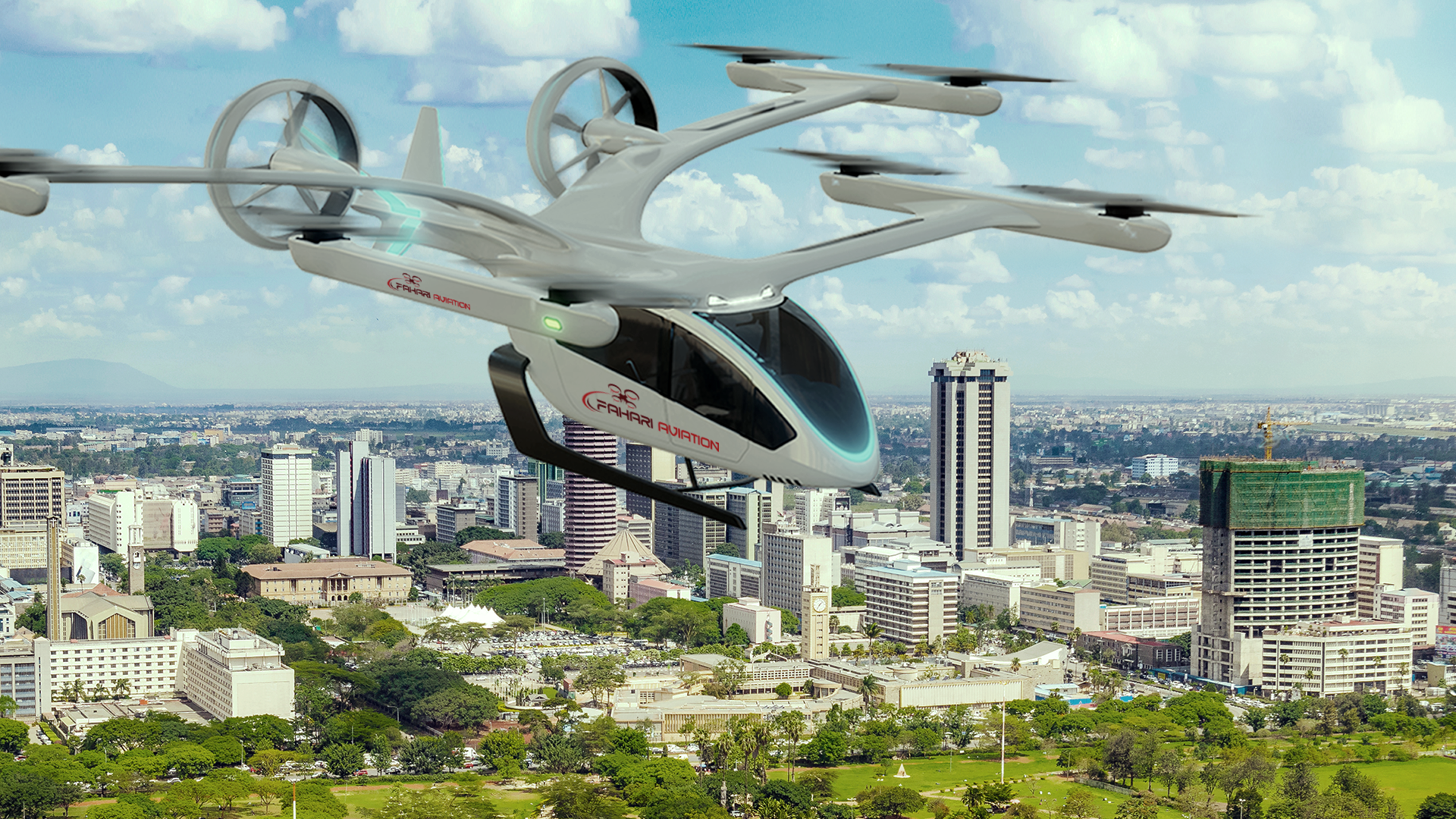Click Here to View This Page on Production Frontend
Click Here to Export Node Content
Click Here to View Printer-Friendly Version (Raw Backend)
Note: front-end display has links to styled print versions.
Content Node ID: 419157
Embraer’s Eve Urban Air Mobility Solutions division and Kenya Airways’ Fahari Aviation subsidiary this week signed a memorandum of understanding (MoU) aimed at developing plans for an African network of unmanned aircraft operations, and eventually eVTOL aircraft passenger service.
Specific objectives for the alliance were not spelled out in an August 11 announcement. However, the agreement appears to be part of Eve's wider plans to develop an ecosystem to support advanced air mobility services using its four-passenger, all-electric aircraft, which is expected to have a range of around 60 miles and be certified for commercial use from 2026.
Under the agreement, Eve will support Fahari’s establishment of an urban air mobility (UAM) network and collaborate on the required urban air traffic management procedures operating environment for both manned and unmanned vehicles. The partnership will also allow Fahari to support Eve’s aircraft and product development process, helping guide the integration of UAM services with Kenya Airways’ overall operations.
Kenya Airways, which is part of the international Sky Team Alliance, operates to 41 destinations worldwide, including 34 in Africa, and carries over four million passengers each year. The announcement did not provide details of the planned urban services using unmanned aircraft and passenger-carrying eVTOLs. The Kenyan capital Nairobi has around 4.7 million inhabitants.
“We are thrilled to partner with Kenya Airways to provide new forms of air mobility throughout the region for both people and goods,” said Eve president and CEO Andre Stein. “The creation of disruptive and widely accessible urban air mobility solutions will help democratize mobility by making it more accessible, affordable, and giving communities more options. This partnership will foster long-term mobility strategies throughout the country and region.”
The partnership will deliver a strategy to provide Fahari Aviation’s passengers with what the companies call a sustainable, accessible, and affordable transportation option. The companies have not indicated when the planned network will become operational. "A key component of this collaboration is to begin learning together how new manned and unmanned aircraft can be incorporated into the existing route network as well as to develop a business case for new routes and use cases that can be developed to meet the needs of Fahari Aviation," a spokesperson told FutureFlight.
“Partnerships are vital in mapping out the future of our airline, something which the global crisis has reinforced,” said Allan Kilavuka, group managing director and CEO of Kenya Airways. “Innovation is a critical element of our long-term sustainability. Fahari Aviation is at the forefront of exploring advanced technologies, with a key focus in aviation, starting with drone technology. With this partnership, we look to develop innovative air mobility solutions for our clients in Kenya and throughout the region.”
For now, Fahari's main focus is on developing the use of unmanned aircraft systems in Africa. It provides training and operational support, mainly for smaller UAVs.
